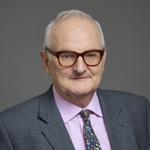Languages: Education
(asked on 10th July 2019) - View SourceQuestion to the Department for Education:
To ask Her Majesty's Government what is their assessment of the 2019 Language Trends Survey, published by the British Council in July, in particular its findings that (1) disadvantaged pupils are less likely to take a language GCSE, and (2) only a quarter of state schools offer pupil exchanges abroad, compared to almost half of independent schools.
The department notes the British Council Language Trends 2019 Survey and wants to see more pupils take languages at GCSE and experience international opportunities, including those from disadvantaged backgrounds. We have included languages as a pillar within the English Baccalaureate school performance measure to address the sharp fall in take up following the decision to make the subject non-compulsory at key stage 4 in 2004. This has seen the proportion of pupils who take languages GCSE increase from 40% in 2010 to 46% last year, and we want to see these numbers increase.
In the department’s £4.8 million Modern Foreign Language (MFL) Pedagogy pilot programme, one of the 9 lead schools is in an Opportunity Area and another is in the Opportunity North East area. We have launched a pilot project in MFL undergraduate mentoring for secondary school pupils. This project specifically targets areas of high disadvantage to extend access to languages for all pupils and focuses on areas of low uptake. We are also piloting a financial incentive to improve the retention of MFL teachers in 25 local authorities that are most in need.
In partnership with the British Council, the department is offering thousands of young people the chance to take part in international exchanges and visits. Backed by £2.5 million, schools in England can apply for grants to take pupils aged 11 and above to visit partner schools around the world. The programme is principally focused on those from disadvantaged backgrounds and we want to encourage as many schools as possible to sign up for this opportunity.

